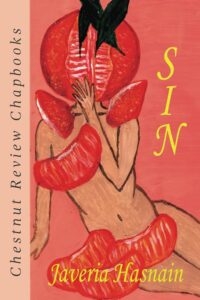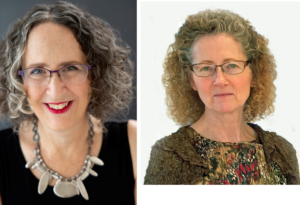Doubting Narcissism
by Katie Condon
January 22, 2016
Until recently, I believed that narcissism was as essential a tool as language for poets and writers. Specifically, that the grandiose level of confidence narcissism requires was the secret to writing beautifully, honestly, and without fear. I adopted this as a poetic ideology, and stood by it with the kind of fervor I assumed entitled me to spout the opinion at parties and bars with the insolent authority reserved for politicians. I must have sounded ridiculous paraphrasing lines from “Song of Myself” or that bit from W.S. Merwin’s poem “Berryman” that warns: “don’t lose your arrogance yet…/you can do that when you’re older.”
Katie Condon
I declared narcissism’s importance so often that what began as a sincere philosophy eventually became a shtick. I had retorts for counter arguments memorized. If someone brought up pathological narcissism, I’d smirk over my cheap, flat beer before reciting something about “great writers’ narcissism” lasting only as long as they’re “creating” because they’ve succeeded in “cultivating an extinguishable grandiosity.” If someone argued that my theory left no room for revision, claiming narcissists aren’t capable of the humility it takes to rewrite, I’d wave their comment aside and remind them that while the “arrogant energy” we’re drawing from is “inherent,” it’s also controlled. We aren’t diving into the well, so-to-speak—we are lowering the bucket down to sip from only when we need to, thus when we aren’t drunk on ourselves, humility abounds.
If you are one of the people I forced to listen to any variation of the above, I am sorry. I cringe thinking of the things I said, of the vanity I said them with. I am sheepish—yet, I can’t bring myself to retract the theory completely. So I’m changing the terms:
When a person enlists as a writer they are signing up for a lifetime of self-doubt. This is not news. For a long time, it seemed natural to me to combat this inevitable doubt with its opposite: narcissism. A narcissist is her own god shouting, “Screw you! Do you know who I am?” to every editor who rejects her, and there is something empowering about that kind of resistance. Although, what the narcissistic writer misses out on (yes, even if her narcissism is of the “extinguishable” kind) is the passion that is born from uncertainty.
Recently, in an interview with the New York Times, Eileen Myles said, “As things get worse, poetry gets better, because it becomes more necessary.” The “things” Myles is referring to in this instance are America’s political ideals, but her insight also applies to writers on a more intimate scale. After all, it’s when we are in the depths of self-doubt, looking desperately for any sign of dignity, that we question why we pursue art at all. And then, purely because we asked, we remember why with passion. Our art becomes necessary to us again. We remember we aren’t writing to win the $15,000 prize. We’re writing because every day people are born into a world that is falling asleep. We aren’t writing to get an agent, or with hope Leonardo DiCaprio will play our protagonist in the film version of our novel. We’re writing because the wind is warm this morning, and mist is lifting itself up from the river. Because we are still capable of love. Because we are witness to horror that needs a name.
The downfall of the narcissist is that things never get bad, so her writing never gets better. Jaded and dispassionate, the narcissist doesn’t have to question the necessity of her art because she believes she exists to bless the world instead of interrogate it. Berryman warned Merwin (in the portions of the poem I consciously neglected to quote at the bars) that arrogance easily turns to “vanity,” and avowed that “the great presence/that [permits] everything and [transmutes] it/in poetry is passion.” If living in a constant state of conviction breeds writing from vanity instead of vehemence, we are indebted, then, not to our confidence but to our doubt. What we find there is a fierce will to persevere so we can more accurately name and transcend what is terrible and what is beautiful.
—————–
ABOUT THE AUTHOR
Katie Condon has received fellowships from the Bread Loaf Writers’ Conference and Inprint. Her recent poems appear in or are forthcoming from The Adroit Journal, Indiana Review, New Ohio Review, and other journals, as well as the anthology Hallelujah for 50ft Women. Katie received her MFA from the University of Houston, and is currently a PhD candidate in Literature and Creative Writing at the University of Tennessee.






